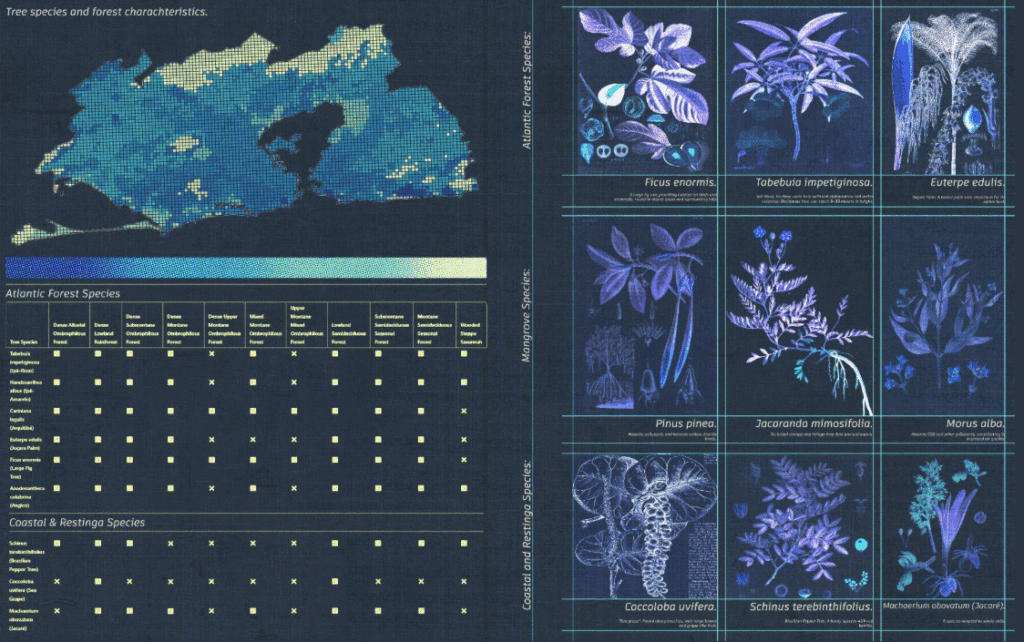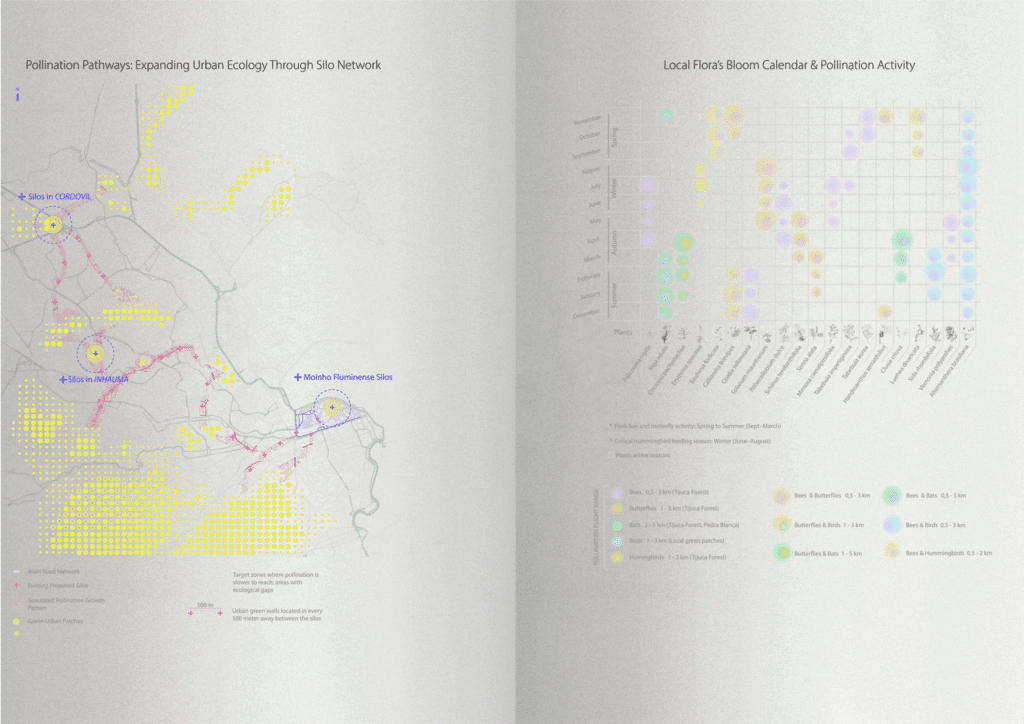This project reclaims abandoned silos in Rio de Janeiro as neighborhood-scale infrastructures for ecological justice. It builds a circular system where waste is not only recycled, but revalued through community collaboration. Organic and material waste become part of urban greening and pollination strategies, empowering catadores and youth as co-creators. Through reuse, education, and biodiversity enhancement, the silos become ecological and social hubs, connecting justice with regeneration.
The Palace of Trash
Reframing Waste. Empowering Communities. Cultivating Urban Ecologies.
“The Palace of Trash” is an ironic yet empowering title that reimagines waste not as a burden, but as a starting point for ecological, social, and spatial transformation. By turning abandoned silos into hubs of circular action, we elevate the value of discarded materials, informal workers, and neglected ecosystems.
In a city where waste symbolizes inequality, this project proposes a new narrative:
A palace not for kings, but for catadores, pollinators, and people.
A network of silos that functions as community labs, composting centers, pollinator gardens, and learning space, bridging waste management and biodiversity restoration.
Through this shift in perspective, The Palace of Trash becomes both a critique of systemic neglect and a proposal for an inclusive, regenerative urban future.

What does ecological justice mean?
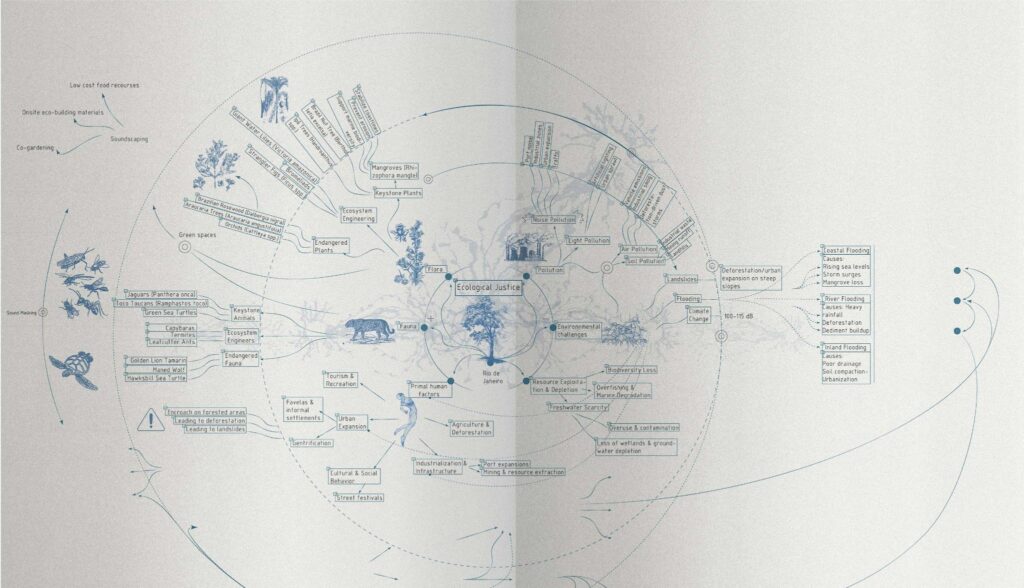
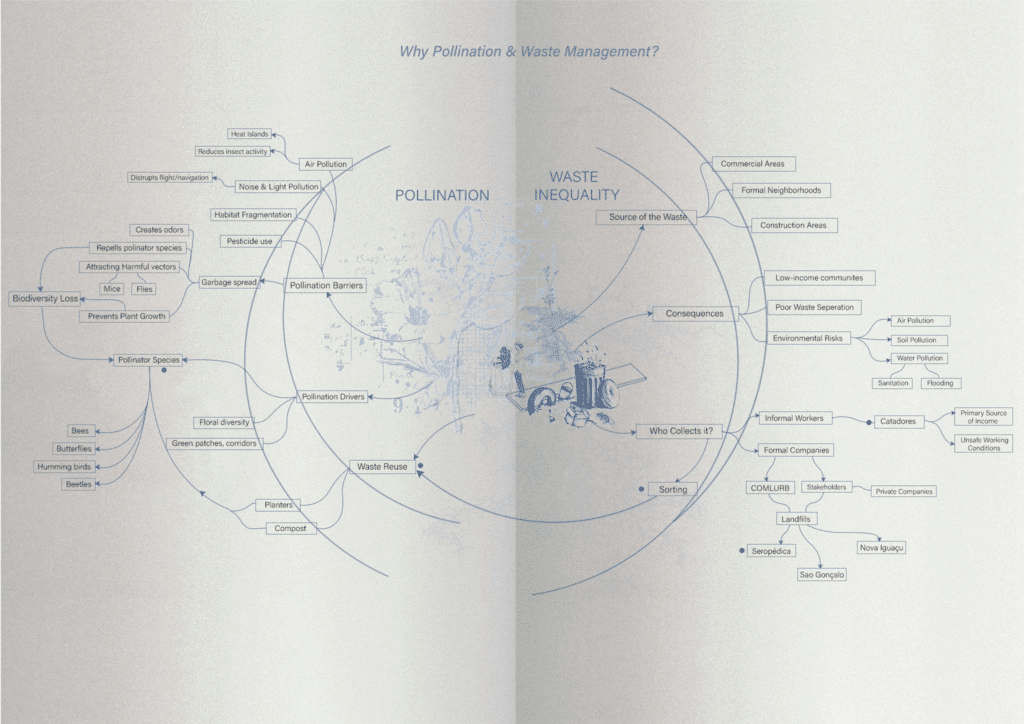
Context Analysis of waste infrastructure in Rio de Janerio
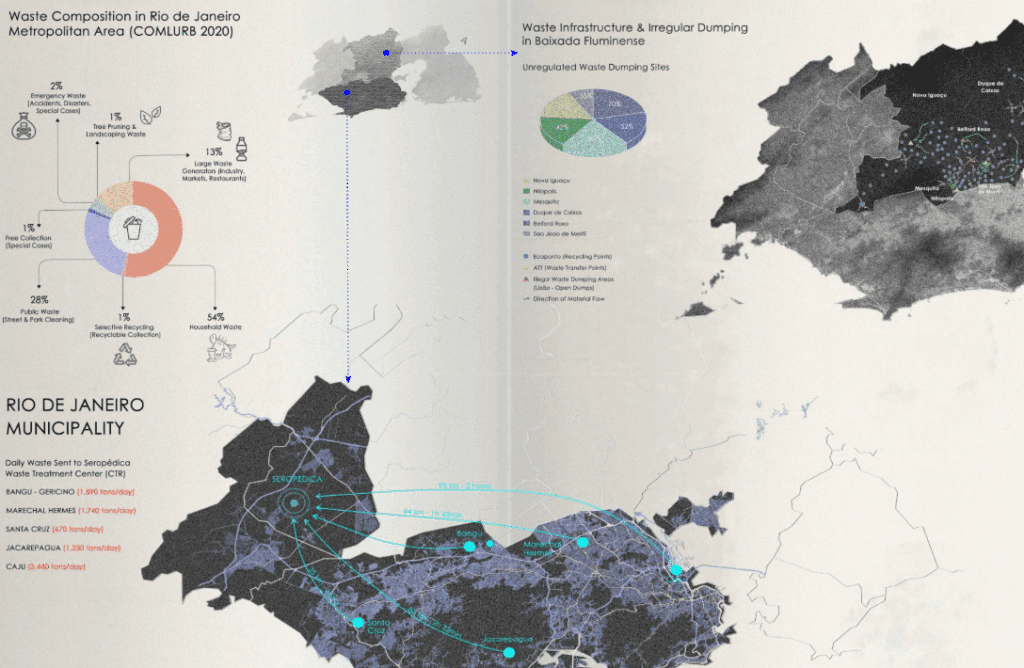
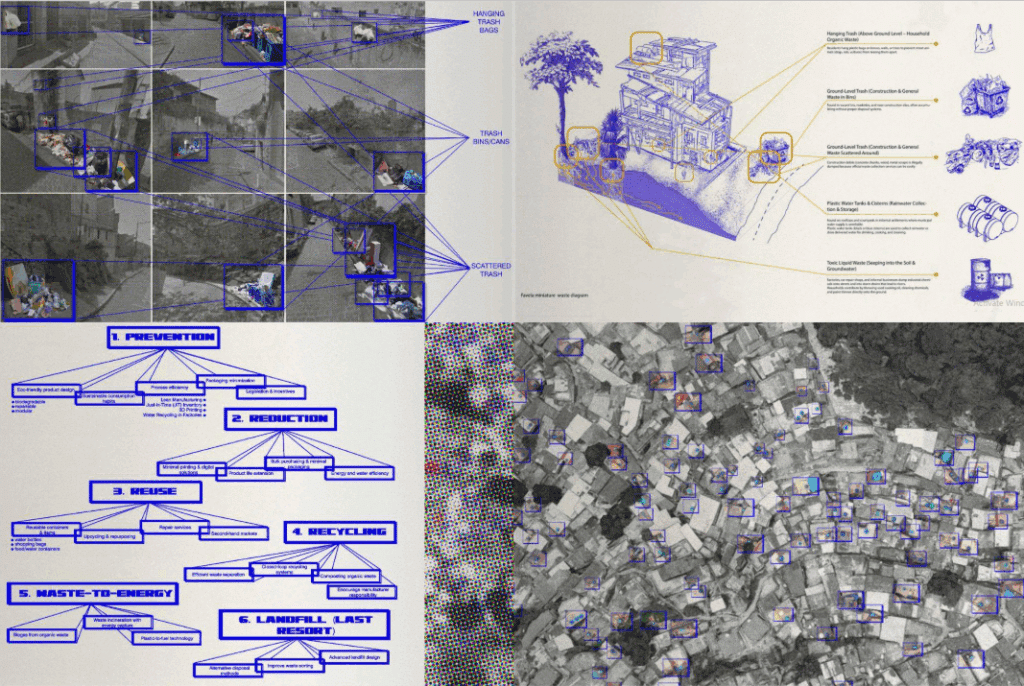
Intervention area
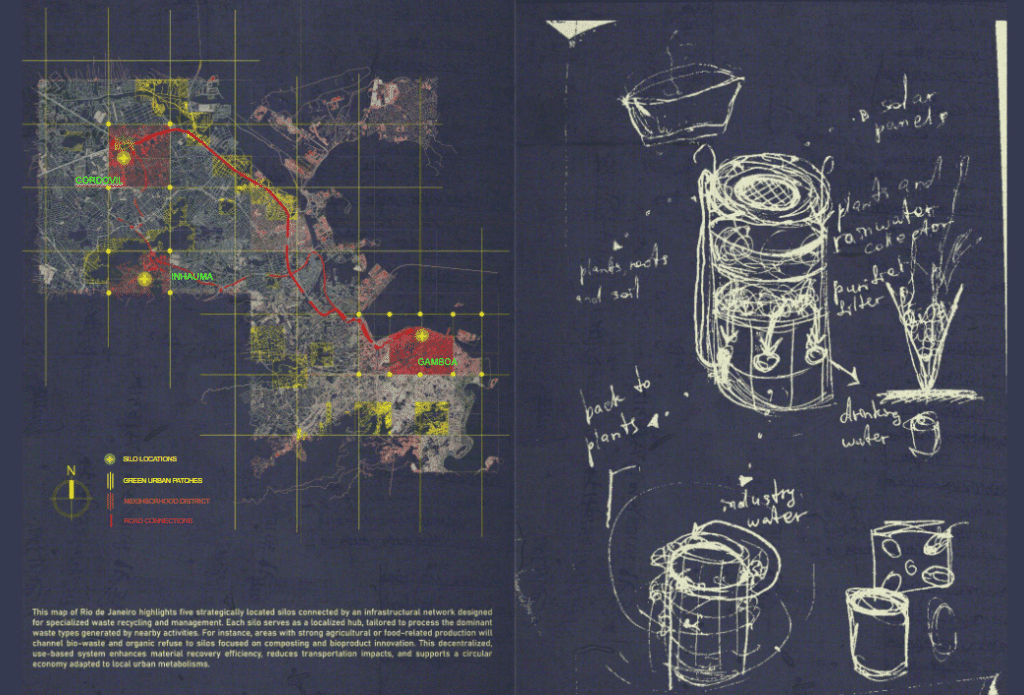
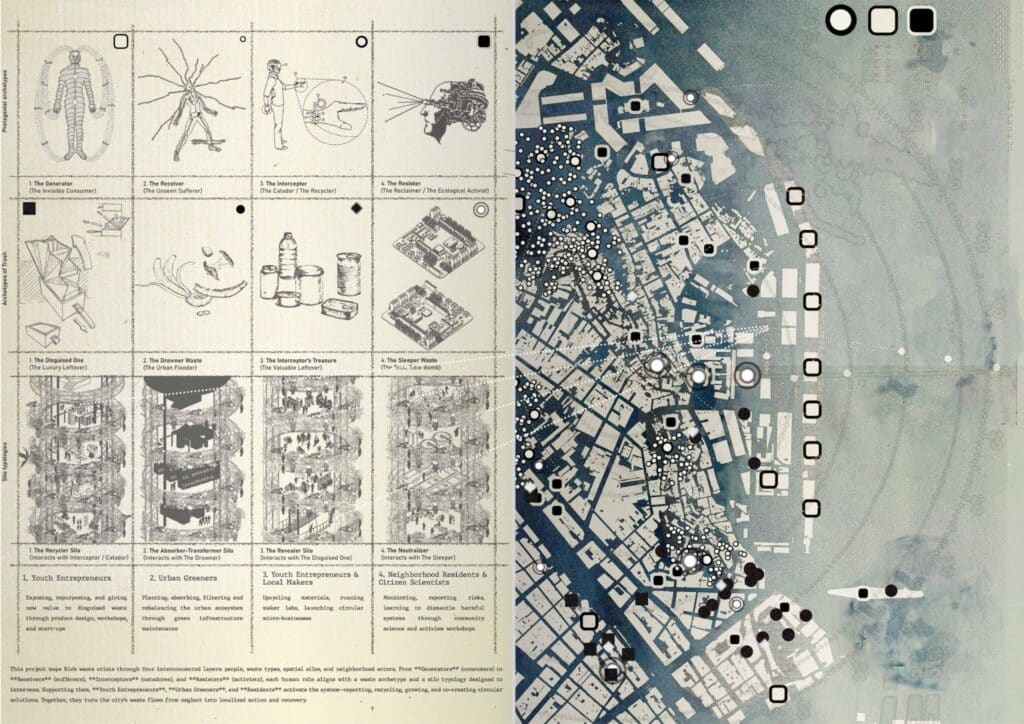

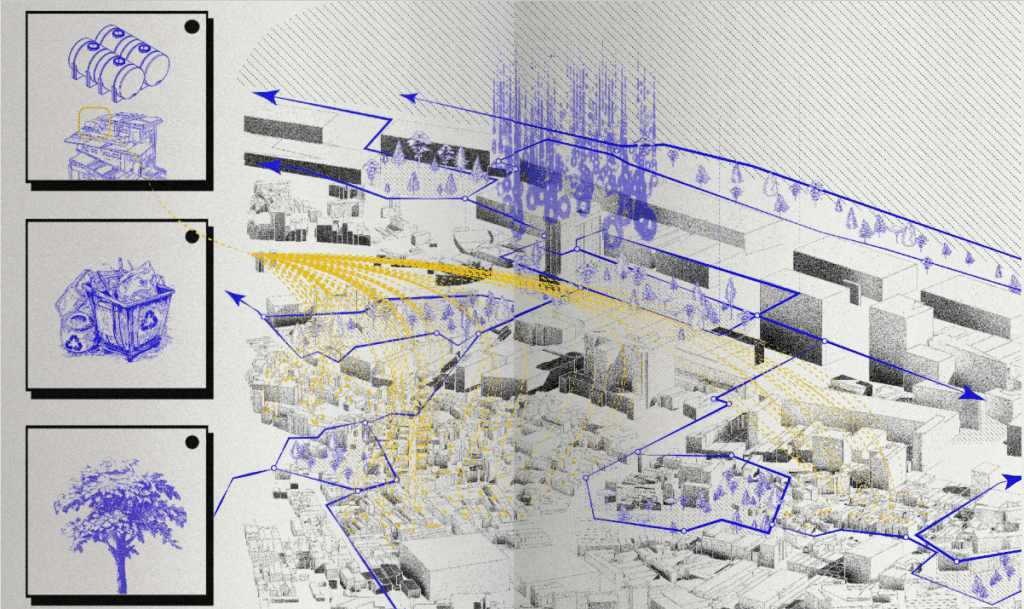
Design
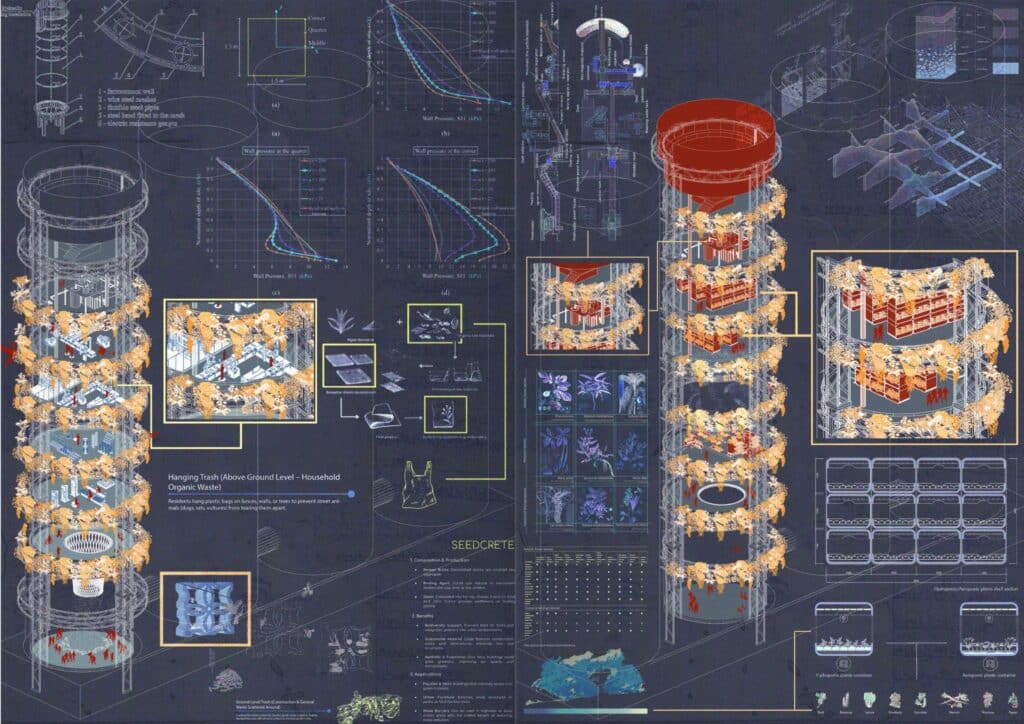
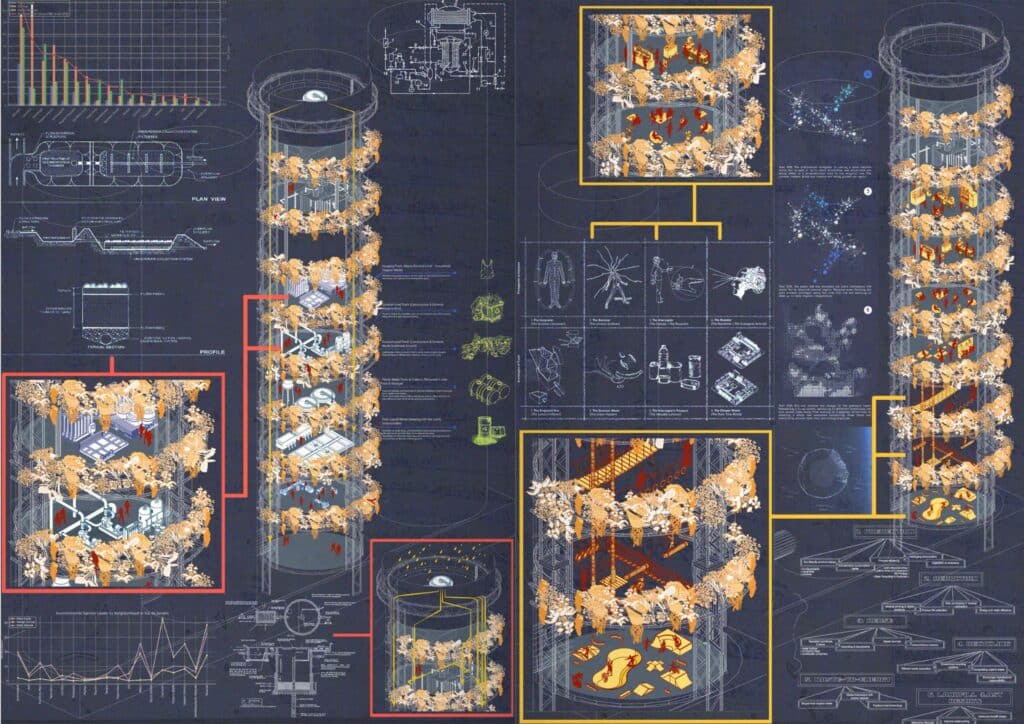
Pollination Analysis
